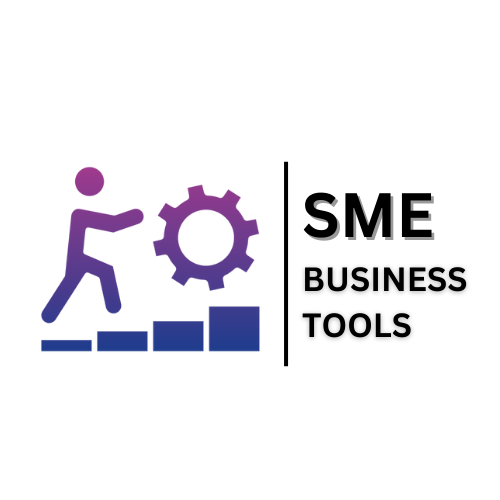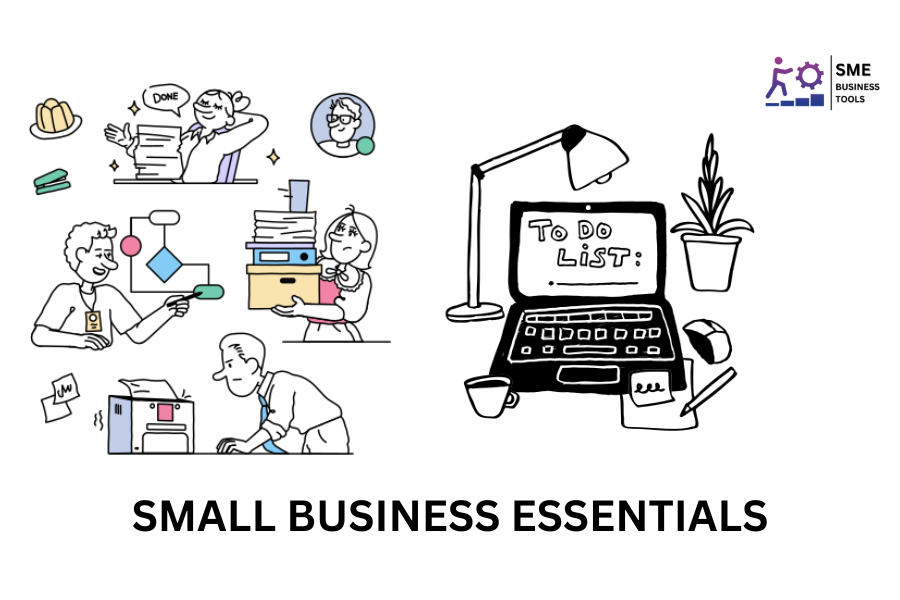Table of Contents
Running a small business comes with its own set of challenges and opportunities. Small businesses, which include micro, small, and medium enterprises (MSMEs), are vital to the economy, providing employment and fostering innovation. These businesses vary in size, with micro-enterprises often being local operations with minimal staff, and medium-sized firms handling more complex operations. Regardless of size, having the right tools and resources is crucial for efficiency and growth.
In this blog, we will explore the essential tools and resources that small businesses need to thrive.
1. Accounting Software
Managing finances is key to business success. Tools like QuickBooks, Xero, and Wave help streamline financial management by offering features such as invoicing, expense tracking, and financial reporting.
2. Financial Resources
Accessing financial resources, whether through loans, grants, or budgeting tools, is essential for sustaining and growing a business. Depending on your location, there are different places for access financial resources for your business.
3. Marketing
Effective marketing helps attract and retain customers. Tools like Canva, Mailchimp, and Hootsuite enable businesses to create, manage, and analyze marketing campaigns.
4. Collaboration Tools
Collaboration tools enhance team communication and project management. Popular options include Slack, Trello, and Asana.
5. Email Management
Efficient email management is crucial for maintaining communication with clients and partners. Gmail, Zoho Mail, and Microsoft Outlook are widely used for this purpose.
6. HR Tools
HR tools streamline processes such as recruitment, payroll, and employee management. Examples include BambooHR, Gusto, and Zoho People.
7. Social Media
Social media is essential for brand awareness and engagement. Tools like Buffer, Later, and Sprout Social help businesses manage and analyze their social media presence.
8. Website
A professional website is critical for establishing an online presence. WordPress, Squarespace, and Shopify are popular website builders that cater to various business needs.
9. Customer Relationship Management (CRM)
CRM tools improve customer interaction and sales management. HubSpot CRM, Streak, Salesforce Essentials, and Pipedrive are effective options for small businesses.
10. Data Management
Data management tools ensure that business data is secure and accessible. Google Drive, Dropbox, and Amazon S3 are commonly used solutions.
11. Legal Support
Legal support tools help businesses manage contracts, compliance, and other legal matters. Whether you would like to seek support from a lawyer within your area or online, legal support is a crucial component of your small business.
12. Portable Memory Storage
Portable memory storage is vital for data backups and mobility. Options like SanDisk Ultra USB and Samsung T5 SSD offer reliable storage solutions.
13. Tech Protection
Tech protection tools safeguard against cyber threats. Norton Small Business, Bitdefender, and Avast provide comprehensive security features. You can also opt to consult with a cyber security expert for more guidance.
14. Business Organization
Organizational tools help streamline operations and improve efficiency. Examples include Todoist, Google Workspace, and Monday.com.
15. Business Insurance
Business insurance protects against unforeseen risks. Insurance providers offer tailored insurance plans for small businesses.
Conclusion
Equipping your small business with the right tools is essential for success. From accounting software to business insurance, these tools and resources support every aspect of your operations, helping you navigate challenges and seize opportunities.



 Recommended Tech Stack for Small Businesses on Reddit
Recommended Tech Stack for Small Businesses on Reddit